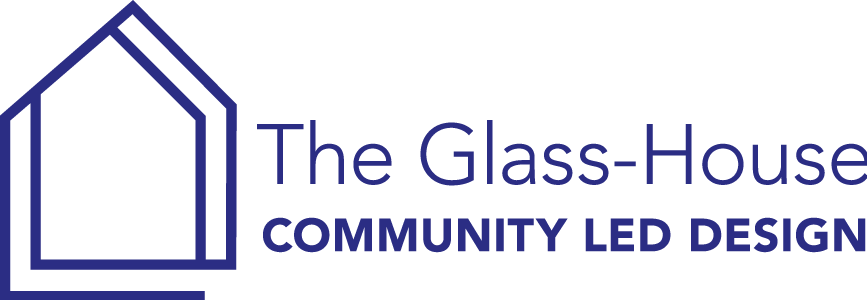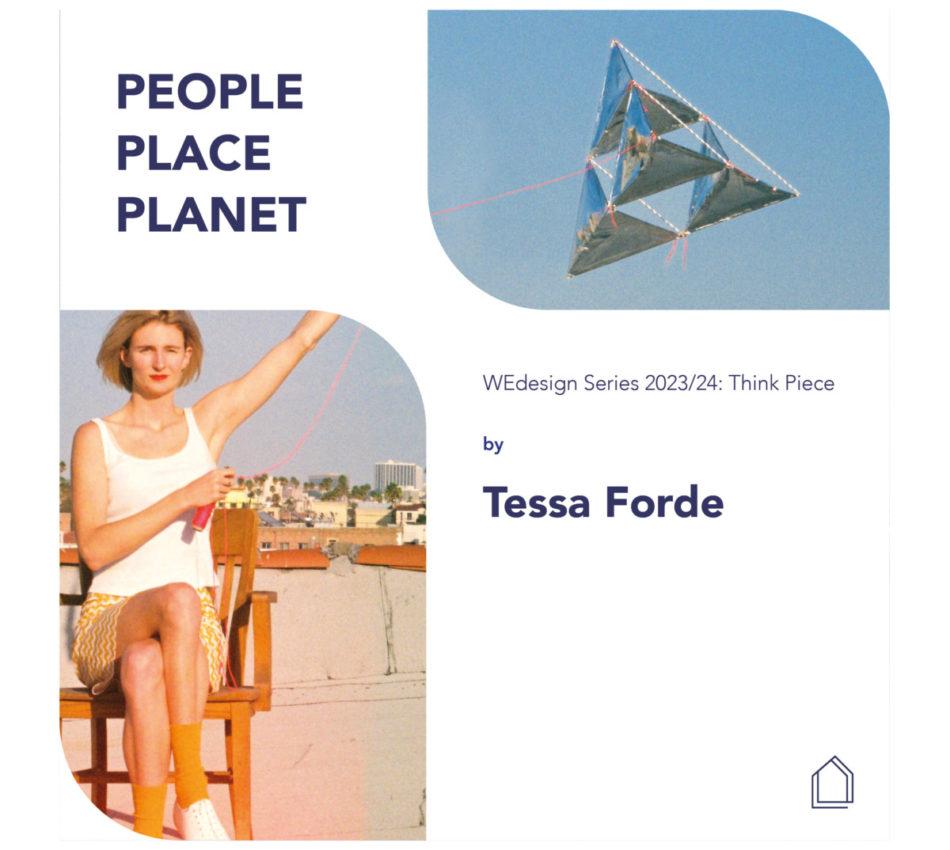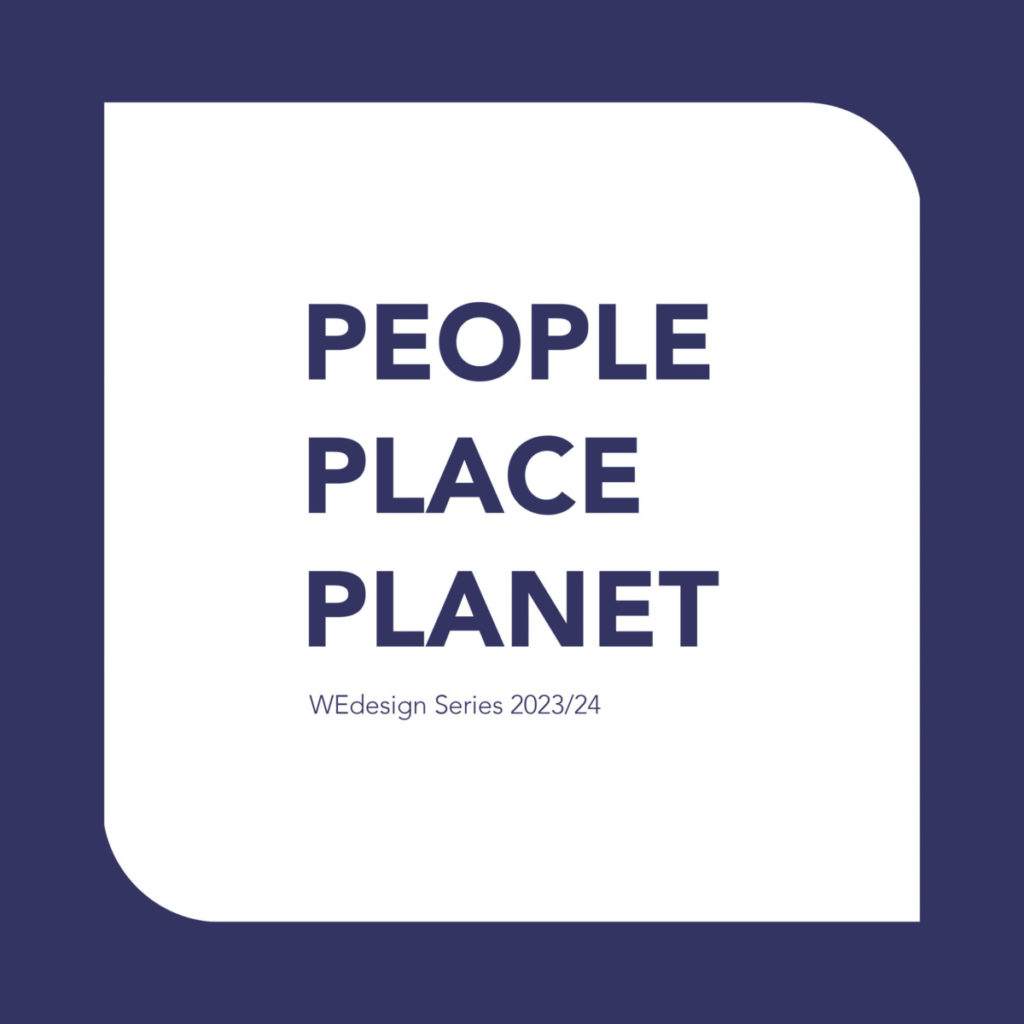Written by:
People, Place, Planet: Think Pieces, are a series of online blogs which will take our event series theme as a starting point and will offer an external voice and provocation.
In the first of our People, Place, Planet: Think Pieces, Tessa Forde shares her thoughts and ideas about the theme through the lens of nourishing and gathering in architecture.
Becoming Tethered: Rituals & Relationality
I have a persistent feeling of being untethered. I live in a 12 storey apartment tower on the eighth floor. I have gone days without touching the ground, potentially weeks without touching dirt. The ground outside the apartment is all concrete, and even through the adjacent park, paved with small stones. I have between 80 and 120 neighbours. Between 6 and 10 on my floor. I have seen maybe 4 of them in 3 years. They are often so close to me, I can feel their movement, sense them, hear their drawers closing, their music through the doors, the cry of a grandchild come to visit, but we have rarely spoken. I don’t know any of their names.
When I started my doctoral research 3 years ago, I hoped to attend to this feeling. I wanted to feel tethered, to people and place, to the ground, to my future. I wanted to feel capable, moving into these great unknowns we face. I wanted skills for the apocalypse – permaculture, shelter-building, welding – I wanted to be radical and brave, I wanted to be a trouble-maker, an antagonist. I wanted to form a new role for myself, and for architects.
In 2022 I started a small platform called The Night School. I saw educational contexts as a space in which the world can be reimagined and practised differently. To learn radical ways of approaching architecture I reached out to those doing it, and asked to replicate their methodologies, or invited them to join me. The best way to be radical is just to start somewhere. We role played societal challenges with potato puppets, we wrote poetry and played mind-games, we imagined the city through the lens of a childhood memory, we re-wrote architectural contracts through ritual experimentation.
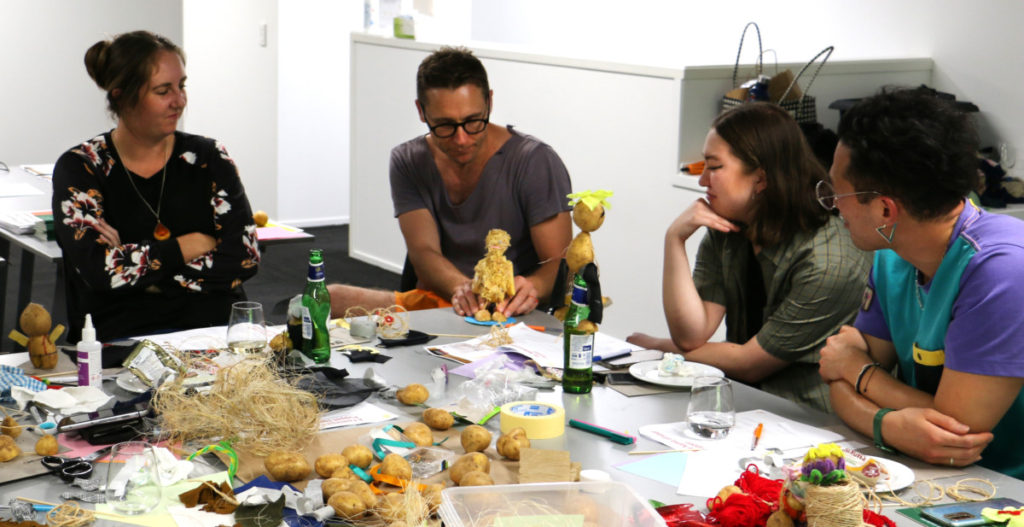
The Night School, and the collective of people that was gathering around it, opened up the space for pre:fab to emerge: a platform of architecture practitioners committed through event-making and collective action for a more just future, who came together in 2022 around a pirate conference in response to the gatekeeping of knowledge by Te Kāhui Whaihanga – The New Zealand Institute of Architects (NZIA). We have since run for president of the NZIA (and lost), submitted to the government on changes to architectural licensing, been shortlisted for a research grant about public housing, hosted another well-attended free conference, hosted an earth-building mixer, and held numerous workshops and pot-lucks.
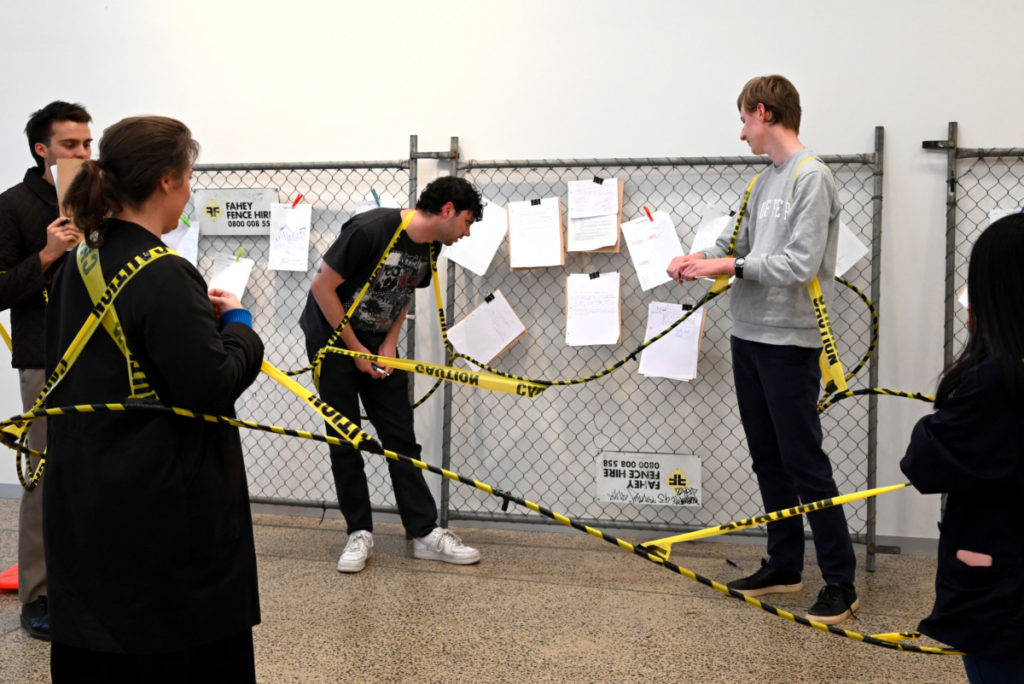
Applying the knowledge from these interventions to the academy and commercial practice was partly where I saw the value of this research. Groupwork is a small commercial practice I share with my partner Leonard Hobbins and our friend Simon Glaister. It is a redistributive practice where at least 10% of our revenue goes towards research and community development work. We experiment with exchange economies, building materials (particularly lightweight earth), contracts between us and clients, ways of working together, and ways of defining architectural knowledge.
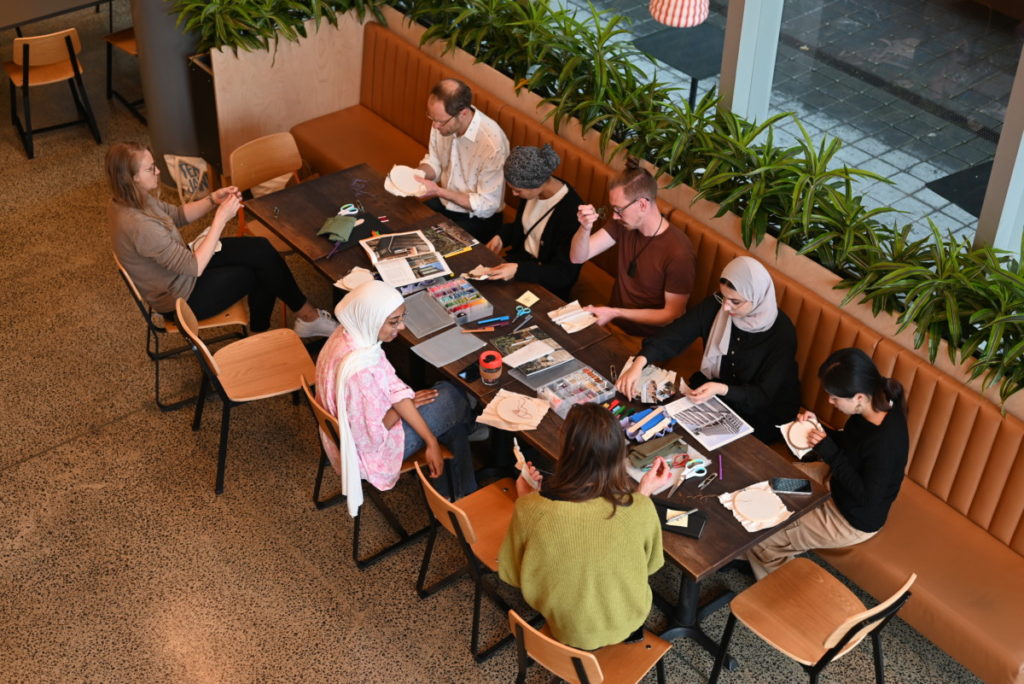
I wanted to trouble, to learn new capabilities, to be ready, but what I uncovered through this practice has been much more trite. What this research is really about is love, is belonging. What I really learned was skills for bringing people together, ways of gathering and communicating, ways to make people feel good when participating in hard tasks, ways to organise and to mobilise, ways to imagine new worlds.
It’s no great use to know how to cultivate a garden if we are stealing each other’s cabbages.
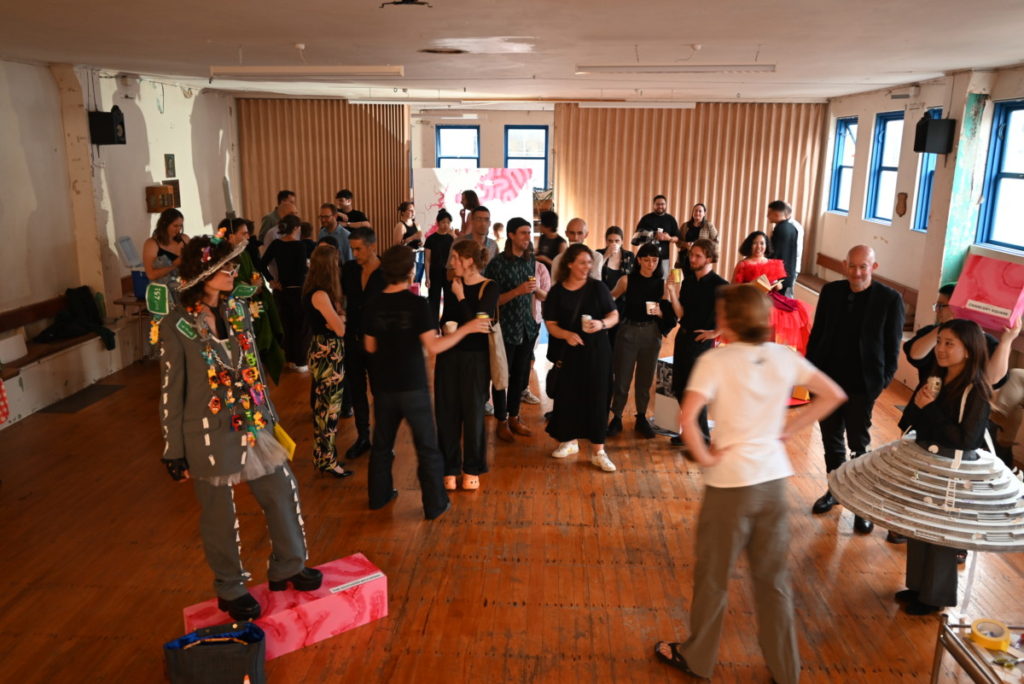
And so this is the role that I see for myself and for architects moving forward – not the role of trouble-maker, but the role of caretaker. Nourishing the ground upon which better practices can flourish, and be connected, and through which things can be shared and learned.
There are two, non-binary modes through which the architect could imagine a new practice and process. Both involve revealing the complex truths within society that we have particular knowledge in, leveraging the design process, at whatever scale, to reveal these truths, and to foster greater connectivity and collectivity. These are:
- Researching and understanding the social and political systems of power that govern policy around the built environment, and attempting to reveal and challenge these vast, interconnected webs of influence.
- Conceiving yourself as the same as everything that exists, as the same as all living things, the same as sand, the same as the long-dead beautiful unknowable creatures who power our cars and wrap our foods, the same as the air, the ground, the ocean, conceiving yourself as a collection of specs connected to infinite specs.
Both represent an opportunity to create shared ritual practices that build collectivity and more relational understanding. The process of making something collaboratively (and making is always collaborative – especially if you conceive yourself the same as sand…) in space should be seen as an opportunity for an architect (or any professional) to create gatherings that share, reveal and foster public knowledge and collectivity.
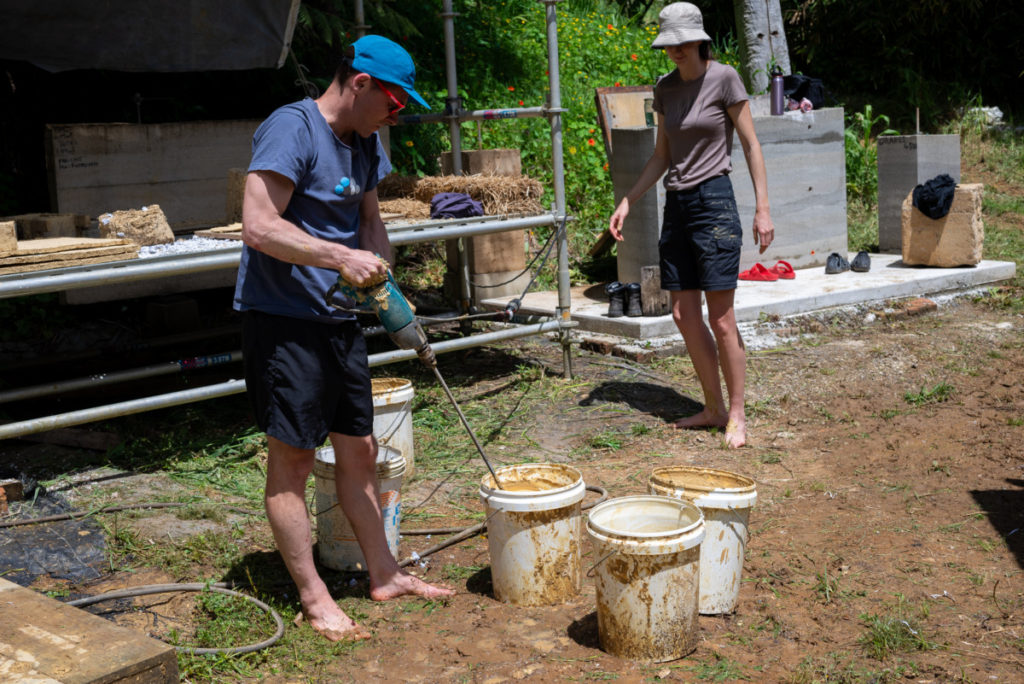
And so you gather people together. You gather to understand a place (places aren’t made, they just are); you gather to recognise those who came before you in that place, who belongs, who wants to belong; you gather to collectively imagine what might happen there; you gather to share and to listen, to bring forward the numerous knowledges and skills that surround you; you gather to understand what material ecologies and economies might exist, to understand and reveal the processes of those materials, where they come from, who has touched them and how they are treated, who suffers in that process, who benefits; you gather to feel connected to those materials, to identify your sameness; you gather to reveal the political processes that determine the physical and conceptual boundaries of that place, who makes the decisions, what historical forces shape those processes, what their real impact is across intersectional challenges; and, most importantly, you gather to be together, to imagine together, to become tethered. The place becomes through the gathering, irrespective of whether the outcome resembles a ‘building.’ We become through the gathering. Better architects, better neighbours, better stewards, better specs connected to infinite specs.
About the Author
Tessa Forde
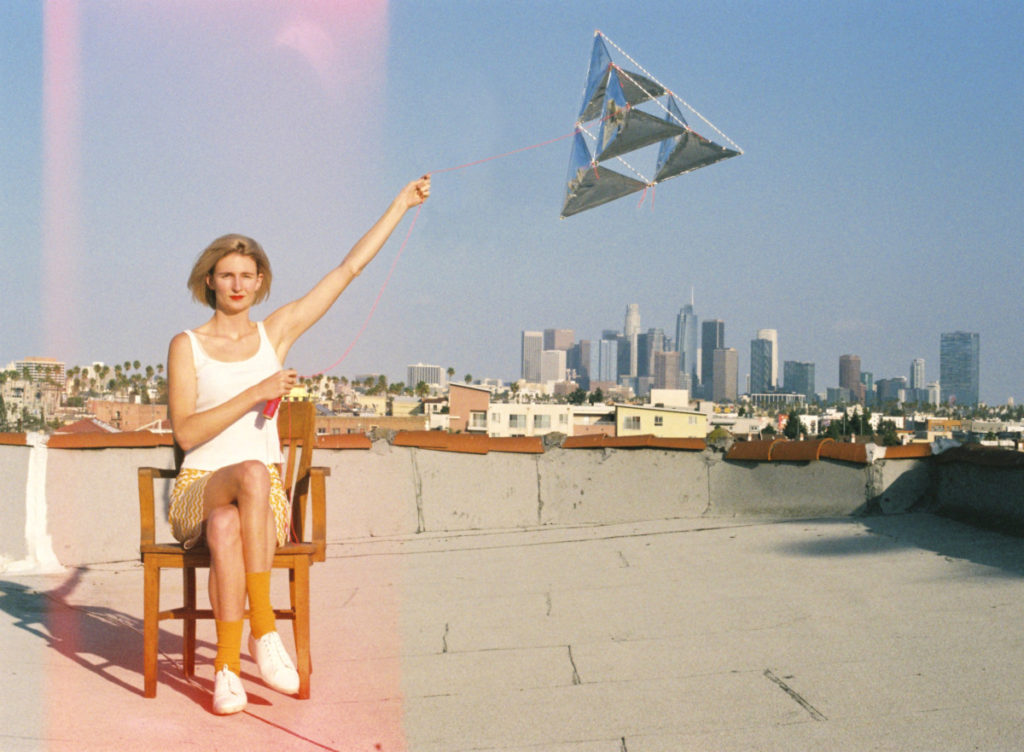
Tessa Forde is an architectural practitioner, a doctoral candidate and lecturer at Auckland University of Technology’s Huri Te Ao – School of Future Environments in Tāmaki Makaurau, Aotearoa New Zealand. Her interest in experimental education platforms and how they can disrupt and reimagine the discipline of architecture is at the centre of her research and has seen her co-organizing the Free School of Architecture in Los Angeles in 2018, establishing The Night School and pre:fab platform in Aotearoa, and involved with the Architecture Beyond Capitalism School for 2022 and 2023. This research work sits alongside her work in the profession across Aotearoa and Los Angeles and has culminated in the co-founding of Groupwork, a small practice who experiment with how architecture is practised, who for, and how the architect’s tools can be redeployed for a more aspirational, equitable, collective future.
Find out more:
https://www.thenightschool-arch.com/
Instagram: @prefab.platform @tessa_e_forde @thenightschool_arch
About the WEdesign 2023/24 Series: People, Place, Planet
People, Place, Planet is our theme for The Glass-House 2023/24 WEdesign series.
As we continue to shape our places, we are faced with the huge challenge of balancing our personal needs, the collective needs of our communities and those of our increasingly fragile planet.
This series will aim to identify and explore the opportunities and synergies that exist when we strive to balance people, place and planet in placemaking.
How can we think differently about how we shape our places? How can we collaborate more through design and placemaking to value and respect people, place and planet equally?
To find out more about the full 2023/24 series, visit our People, Place, Planet page on The Glass-House website.
WEdesign is The Glass-House’s annual series of free interactive public events, held online and in-person in cities across the UK, where we explore collaborative design in placemaking through discussion, debate and playful co-design activities.
To find out more about the WEdesign Programme, visit the WEdesign page on The Glass-House website.
WEdesign is supported by the Ove Arup Foundation.
